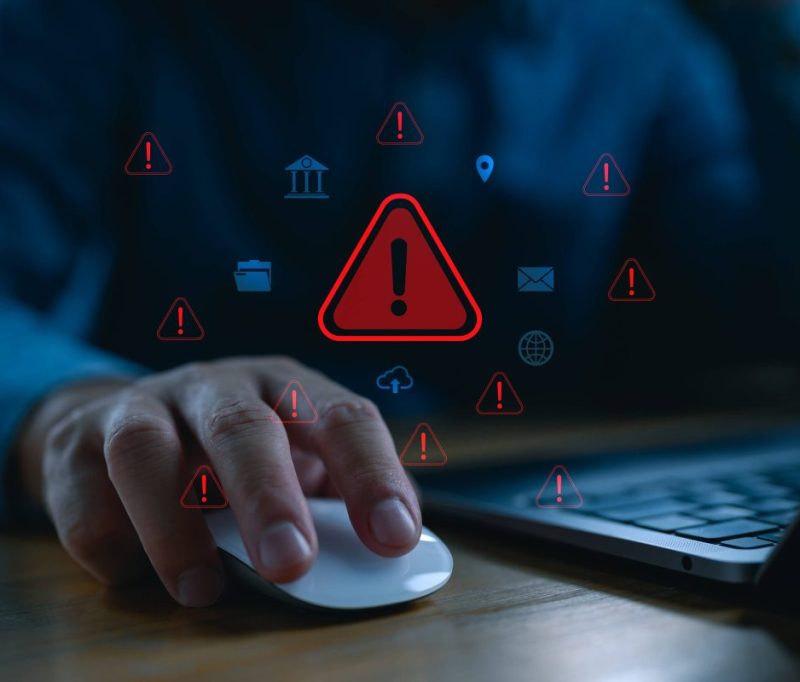Regulatory compliance has become one of the most critical responsibilities for businesses today. With increasing legislation around data protection, financial transactions, and consumer rights, organisations cannot afford to overlook the importance of meeting regulatory standards. Non-compliance can lead to severe penalties, reputational damage, and in some cases, business closure. To avoid such outcomes, companies are turning to technology-driven solutions, and one of the most effective measures is remote IT support.
The increasing complexity of compliance requirements
Regulations such as the General Data Protection Regulation (GDPR), Payment Card Industry Data Security Standard (PCI DSS), Health Insurance Portability and Accountability Act (HIPAA), and various ISO certifications set high benchmarks for protecting data and ensuring customer trust.
- Meeting these requirements can be challenging, especially as new rules continue to emerge across different industries.
- For small and medium-sized enterprises, the burden is even greater because they often lack the in-house expertise or resources to dedicate to compliance full-time.
- Remote IT support addresses these challenges by offering businesses access to professional expertise that keeps pace with evolving standards.
- With real-time monitoring, reporting capabilities, and policy enforcement, companies can remain compliant while focusing on their core operations.

How remote IT support enhances compliance
Remote IT support is designed to address compliance issues at multiple levels, making it easier for organisations to stay ahead of potential risks.
- Proactive monitoring and system updates help ensure that devices, networks, and applications are patched with the latest security updates, reducing vulnerabilities that could otherwise lead to non-compliance.
- Centralised data management enables secure access and storage protocols, ensuring data is handled in accordance with industry regulations.
- Company-wide policy enforcement can be applied consistently, whether employees are working from the office, home, or across international locations.
- Regular reporting and digital audit trails provide proof of compliance for regulators, helping businesses demonstrate accountability when required.
By implementing these strategies, remote IT support creates a more secure environment where compliance is maintained not just during audits but throughout day-to-day operations.
Reducing regulatory risk with remote IT services
The risk of falling short of regulatory requirements is high in today’s digital environment. Data breaches, system failures, or delayed responses to incidents can all result in penalties. Remote IT services help reduce this risk by offering a layer of protection and preparedness.
- Firstly, faster response times mean that if an incident occurs, it can be detected and addressed before it escalates.
- Secondly, around-the-clock monitoring reduces downtime, ensuring businesses maintain continuity and uphold service-level commitments to their customers.
- Remote IT support ensures these processes are not only in place but tested and compliant with regulations, making recovery faster and more reliable.
- Additionally, automation of compliance checks reduces human error, which is a common cause of compliance failure.
Security benefits that support compliance
One of the most significant advantages of remote IT support lies in its ability to strengthen security, which directly supports compliance.
- Advanced endpoint protection ensures that all company devices, including those used in remote or hybrid environments, are shielded from malware, ransomware, and other cyber threats.
- Secure remote access tools such as virtual private networks (VPN) and multi-factor authentication (MFA) ensure only authorised personnel access sensitive information.
- Continuous vulnerability scanning and penetration testing identify weaknesses in the system before they can be exploited.
- Dark web monitoring allows businesses to detect compromised data quickly and take action to minimise regulatory exposure.
These measures not only reduce security risks but also help align businesses with compliance requirements that demand proactive protection of customer data.
Cost-effective way to maintain compliance
Compliance can be an expensive undertaking, particularly when businesses try to manage everything internally. Hiring specialised staff, investing in infrastructure, and maintaining continuous training can quickly inflate costs.
- Remote IT support provides a cost-effective alternative by offering access to compliance expertise on a subscription or service-based model.
- Instead of large upfront investments, companies benefit from predictable pricing structures that adapt to changing regulatory landscapes.
- This ensures businesses avoid costly fines and penalties while maintaining financial efficiency.
- For many organisations, the ability to scale support up or down depending on growth or regulatory changes makes remote IT support an ideal solution.
Industries that benefit most
While every sector is subject to some form of regulation, certain industries gain particular advantages from using remote IT services.
- Healthcare organisations rely on strict data protection measures to comply with regulations such as HIPAA and GDPR, ensuring patient information remains confidential.
- Financial institutions are governed by PCI DSS and Financial Conduct Authority (FCA) guidelines, where secure transactions and customer trust are paramount.
- E-commerce businesses must comply with GDPR and other consumer data laws, protecting customer records while maintaining seamless online operations.
- Educational institutions and nonprofits manage sensitive student and donor data, requiring compliance with multiple privacy and security standards.
In each of these industries, remote IT support provides the assurance that compliance obligations are met consistently and effectively.
Best practices for leveraging remote IT support
To maximise the compliance and risk-reduction benefits of remote IT support, businesses should adopt several best practices.
- Work with certified IT providers who understand the nuances of industry-specific regulations and can implement tailored solutions.
- Document every process, from system updates to incident response, so businesses are always prepared for audits and reviews.
- Integrate computer device management to ensure that all company devices are tracked, updated, and secured under a single, centralised system.
By following these practices, organisations not only meet compliance standards but also create a culture of accountability and security.

The role of computer device management
In modern workplaces, employees often use multiple devices to carry out their daily tasks, including laptops, tablets, and smartphones. Computer device management, when integrated into remote IT support, ensures that every device is properly configured, monitored, and updated to meet regulatory standards.
This approach helps businesses track device activity, enforce access controls, and apply security policies across all endpoints. Whether employees work from home, on the road, or in an office, device management reduces the risk of non-compliance due to outdated software or unauthorised access.
Conclusion
Remote IT support plays a crucial role in helping businesses navigate the complex landscape of compliance and regulatory requirements. By providing proactive monitoring, consistent security measures, and scalable expertise, it reduces the risk of fines and reputational damage. Integrating services such as computer device management strengthens compliance further, ensuring every endpoint meets required standards. For organisations across healthcare, finance, education, and e-commerce, this approach not only improves security but also ensures peace of mind. At Renaissance Computer Services Limited, we understand the importance of combining compliance with efficiency.













